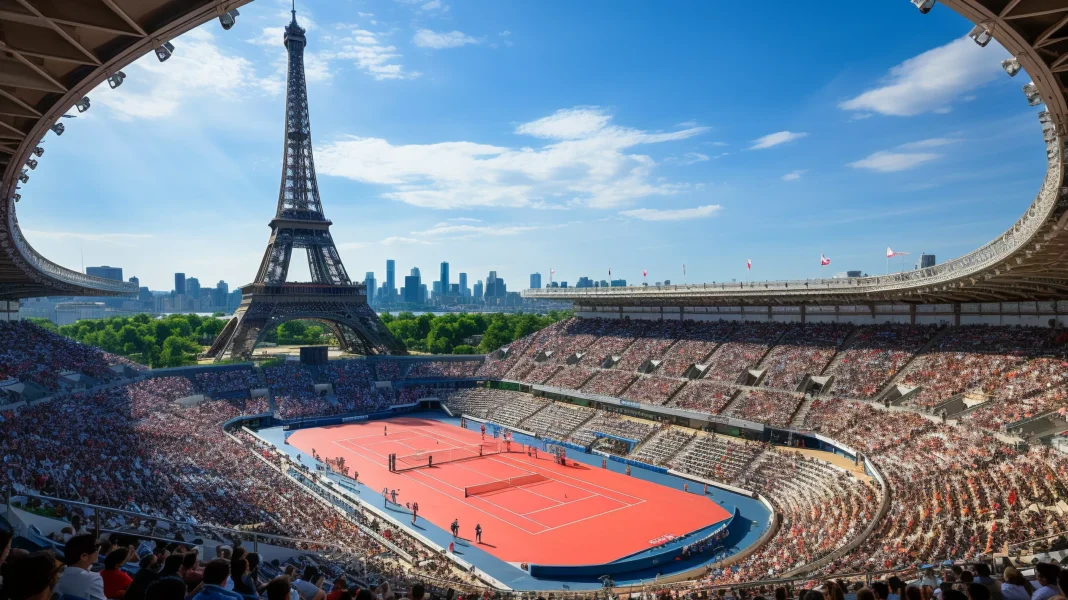The Olympic and Paralympic Games Paris 2024 are set to be the most sustainable and technologically advanced games yet. With the International Olympic Committee’s commitment to reducing carbon emissions and optimizing logistics, it’s clear that a new kind of solution is needed. That’s where Intel comes in.
In partnership with Intel, the Olympic organizing committee has implemented cutting-edge AI technology to plan and execute the games. This technology, known as digital twinning, creates virtual replicas of the Olympic venues, allowing for efficient and flexible planning. With the help of Intel’s powerful processors and GPUs, planners were able to make critical decisions about camera placements, event setup, transit links, security, and crowd management.
Jean-Fauste Mukumbi, Solutions Development Manager at Intel Corporation, Olympics Program Office, explains the process of creating these virtual venues: “We start with a blueprint in digital format provided by the Olympic organizing committee, and from those files, we’re able to create 3D models and then load them into our software partner’s platform. Once those models are uploaded, they can be streamed to client devices all over the world.” This technology not only saves time and resources but also allows for experimentation and adjustments to be made without the need for staff to be physically present at the venues.
But the benefits of Intel’s AI platforms don’t stop there. During the planning process, the virtual twins also helped stakeholders to view and work with changes to the plan in real-time. This level of collaboration and efficiency would not have been possible with traditional 2D drawings.
Sarah Vickers, head of Intel’s Olympic and Paralympic Games Program, highlights the impact of this technology: “We’re really getting smarter about how we’re moving people around, how we’re thinking about concessions, how we’re thinking about signage, how we’re thinking about broadcast cameras. We’re using these digital twins to make decisions and scenario plan, whereas traditionally, that might have had to be done in person through 2D drawings.”
But the benefits of Intel’s AI platforms don’t end with planning. During the games, Intel’s technology will also be used to understand customer satisfaction. A people-counting system, installed at venue media centers and Olympic family lounges, will provide real-time data on venue occupancy. This data will be used to optimize resources such as food and beverage supplies, security, and transportation needs. Mukumbi explains, “The system uses stereoscopic sensors along with machine learning to count the number of people coming in and out of the different venues.” This technology is not only more accurate than manual counting but also provides historical data that can be used to plan future Olympic Games.
The benefits of Intel’s AI platforms are clear, and the possibilities for future integration are endless. In the future, live data integration could enable optimizations and efficiencies that go well beyond what’s possible in Paris this summer. Mukumbi says, “The technology is ready to be deployed on that scale. The possibilities really come down only to the type of data you want to collect on site.”
Vickers adds, “Think about queue times. You can use data to adjust your resources on site so that people experience shorter queues at concessions. This not only optimizes their enjoyment but also leads to happier customers who are more likely to spend money. It’s a win-win situation.”
Intel’s AI platforms are not only revolutionizing the planning and execution of the Olympic Games but also have the potential to impact other events and spaces such as concerts, conventions, and transit centers. With Intel’s technology, the future of optimization is here.
Ravindra Velhal, Intel, sums it up perfectly: “We are using the Olympics as a gateway to solve some of the most complex challenges in the technical world. Intel is one of the only companies on the planet that can do it end-to-end because we have data center to client to edge and everything in between to define the future of the broadcast industry.”
In conclusion, Intel’s AI platforms are playing a crucial role in making the Olympic and Paralympic Games Paris 2024 the most sustainable and technologically advanced games yet. From virtual replicas of venues to real-time data analysis, Intel’s technology is optimizing logistics and enhancing the overall experience for athletes, spectators, and organizers. The possibilities for future integration and advancements are endless, and Intel is leading the way in defining the future of the broadcast industry. To learn more about Intel’s AI platforms and their impact


